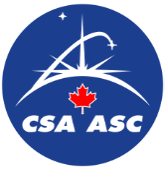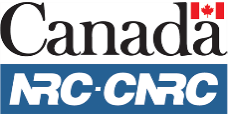L’objectif général à long terme du projet Algae-WISE est de démontrer le potentiel de l’imagerie hyperspectrale et multispectrale pour la détection et la quantification de trois types de biomasse algale marine, qui sont à la base de la productivité et la vitalité de l’écosystème : le phytoplancton, les macroalgues fixées et les macroalgues dérivantes. L’imagerie hyperspectrale à haute résolution spatiale offerte par WISE devrait permettre de quantifier et cartographier la biomasse algale de façon précise, fournissant une caractérisation détaillée de cette composante clé des écosystèmes côtiers. La quantification des algues servira à informer les prises de décisions des différentes instances impliquées en lien avec l’exploitation de cette ressource, tout en assurant sa conservation et les plans de réponse en cas d’urgence environnementale.
Le projet se déroulera autour de l’île d’Anticosti (Québec) qui présente un potentiel exceptionnel en termes de production de macro-algue (p. ex., laminaire). Une campagne préparatoire est prévue à l’été 2021, impliquant une équipe de plongeurs. La campagne principale est prévue en 2022 à bord du Coriolis II, comprenant un survol aéroporté avec les capteurs hyperspectraux. Simultanément, des mesures radiométriques in situ et les propriétés bio-optiques de la colonne d’eau et du substrat seront évaluées. Une caractérisation optique ainsi qu’une estimation de biomasse et de la productivité du phytoplancton et des macroalgues seront réalisées. Ce projet impliquera au moins 8 chercheurs et 7 étudiants dédiés au projet
Algae-WISE est un projet interdisciplinaire qui est financé principalement par l’Agence Spatiale Canadienne (ASC) grâce au programme de Vols et investigations-terrain en technologies et sciences spatiales (VITES 2019). Il rassemble les expertises de plusieurs chercheurs universitaires (UQAR, UQAC, U. Laval, U. N-Brunswick) et gouvernementaux (Défense Nationale, Pêches et Océans) et vise également à former la prochaine génération de professionnels aux techniques de pointe en télédétection des environnements marins.
The overall long-term objective of the Algae-WISE project is to demonstrate the potential of hyperspectral imagery for the detection and quantification of the three types of marine algal biomass that are the foundation of the marine ecosystem productivity and vitality: phytoplankton, macroalgae and unattached floating algae. With hyperspectral sensors at high spatial resolution, like the WISE sensors, algal biomass can be mapped with higher accuracy, providing a detailed characterization of this unique coastal ecosystem. Knowledge of the evolving state of coastal and marine ecosystems will serve to inform decision-makers, first nations and NGOs in conservation for preservation and restoration efforts, as well as to implement more efficient and targeted area response plans.
The project will take place around Anticosti Island (Québec), which presents a high potential in macroalgae production (for example kelp species). A preliminary field campaign is planned for the summer 2021 involving a team of divers. The main field campaign will occur in 2022 onboard the Coriolis II, including a flight with the hyperspectral sensors. Simultaneously, in situ radiometric measurement and bio-optic properties of the water column will be sampled. An optical characterization along with a biomass and productivity estimation of the phytoplankton and macroalgae will be done. This project involved at least 8 researchers and 7 dedicated students.
Algae-WISE is an inter-disciplinary project financed mainly by the Canadian Space Agency (CSA) through the Flights and Fieldwork for the Advancement of Science and Technology (FAST 2019) program. It gathers together academic researchers (UQAR, UQC, U. Laval and U. N-Brunswick) and governmental researchers (National Defence Canada, Fisheries and Oceans) and aims at preparing the next generation of high qualified personnel in using those state of the art techniques in remote sensing of marine environment.
Partenaires / Partners





Partage de données / Data Sharing
L’accessibilité des données pour les autres scientifiques et chercheurs ainsi que le grand public est un aspect important de ce projet. Dans ce contexte, les données seront intégrées à la plateforme de partage de l’OGSL (Observatoire Global du St-Laurent) lorsqu’elles seront disponibles.
An important aspect of the project is to make the data available to other scientists as well as the public. In that context, the integration of the project’s data with the SLGO (St.Lawrence Global Observatory) will be undertaken once those data become available.


